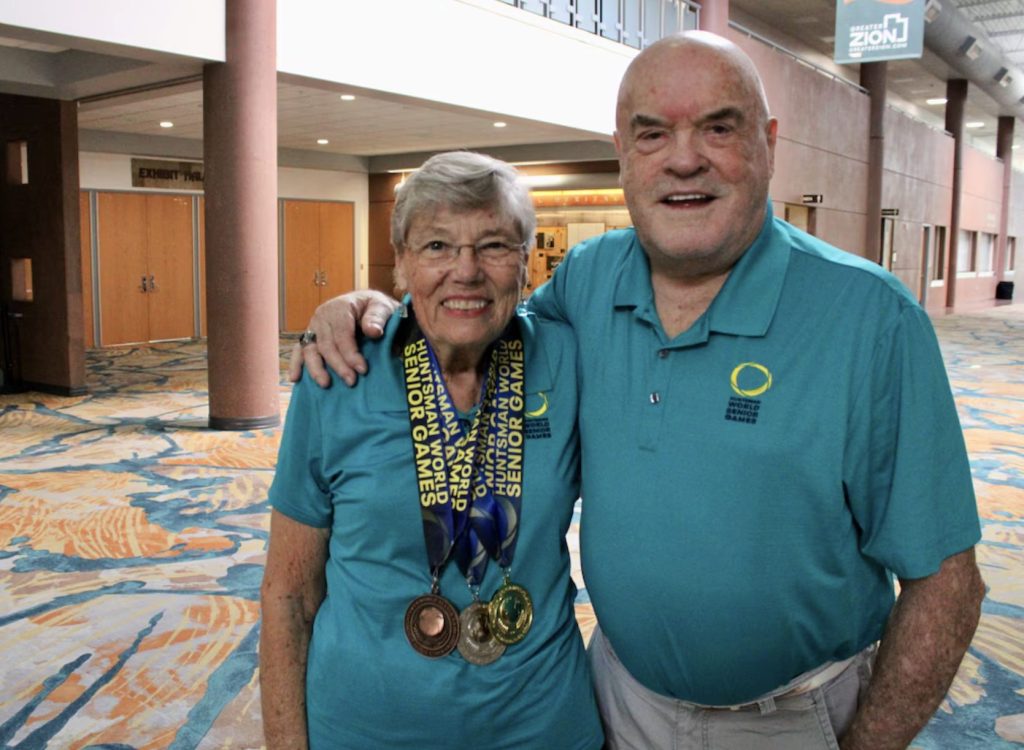During the summer of 2020, Snow College professor Nathan Caplin was sitting on his couch in his home in Santa Clara, when an idea sparked in his mind: “Why don’t we bring college courses to incarcerated youth in the state?”
Before this, his time as a professor led him to build and distribute remote academic courses to students living in rural areas across Utah. Teenagers from small towns who didn’t have access to higher education were able to earn college credits, certificates and certain degrees through Snow College.
With the help of Utah state representative Lowry Snow, Caplin pitched the idea to the then Dixie State University President Richard “Biff” Williams and Kevin Simmons, who still serves as the executive director of early college outreach at the university. After a nine month review period, the Utah House of Representatives and Senate unanimously voted to implement Utah HB 0297, titled the “Utah Tech Higher Education for Incarcerated Youth Program.”
One in 16 kids will spend time in secure detention in the state of Utah, but state law requires those between the ages of 6 and 18 to attend school. The HEIY program allows teenagers in long-term criminal justice supervision to earn college credits and work toward degrees and certificates.
As of fall 2025, the program is offered in 11 secure youth and juvenile justice detention centers across the state, including in Cache Valley, Salt Lake, Split Mountain and Cedar City. In total, it has served nearly 200 students and offers eight associate degrees and 17 certificates. There are currently 65 students in the program, which represents over 30% of Utah’s long term juvenile justice population, according to Caplin.
For two hours a day, students attend either in-person classes within these institutions or via Zoom. Caplin himself teaches a variety of classes within the program, including history, political science, economics, American literature and criminal justice. The program employs from other universities such as Brigham Young University, Southern Utah University, Weber State University and schools outside of Utah.
Caplin said that since the program’s inception in 2021, 20 students have earned their general education certificates and eight have earned their associate degrees.
“We may have our first juvenile justice resident earn his bachelor’s degree this December,” Caplin said. “Utah Tech will be one of the first schools to ever achieve that level of education in the juvenile justice system.”
Most students are in the program for 12 months. Caplin said that the juvenile justice department’s Youth Parole Authority has been releasing students before their sentence is finished because of the students’ successes. If they choose, they can continue their education once they’re released.
He emphasized how the program’s effects stretch beyond the academic scope — one student told Caplin how the two hours spent in these classes are the time he feels like a normal person, not just a kid in secure detention.
Two students in the program have their sights set on educational goals and are hoping to make an impact in the community and within their families.
To protect their privacy, each student will be referred to by a pseudonym. Note that these are NOT the students’ real names.
David is currently studying to earn his degree in criminal justice. He said, “I grew up in the system and I know what the system is like, so I’m trying to just help those that are in my situation.”
David said each of the five courses he’s enrolled in has helped to expand his knowledge. He’s learned about topics from nutrition to sociology.
Paul, another student, is enrolled in history, English literature classes, as well as Utah Tech’s Trailblazer Connections course. He expressed similar feelings, saying: “There’s no such thing as learning too much. [The classes] just made me like history more.”
Paul is pursuing his business certificate and is trying to be the first in his family to earn a college degree.
Although both students are focused on their degrees, David said he might want to pursue something in business once he finishes the program. Paul wants to focus on his certificate and see how he feels afterward.
The program partially relies on donations from a scholarship fund, and all are welcome to donate.
Caplin said the HEIY program has created a statewide community of learners. Following the death of a professor who taught in the program, the students poured kind words of love and support for the professor’s widow.
“The level of respect and humility among these students is remarkable and almost unmatched,” Caplin said.



